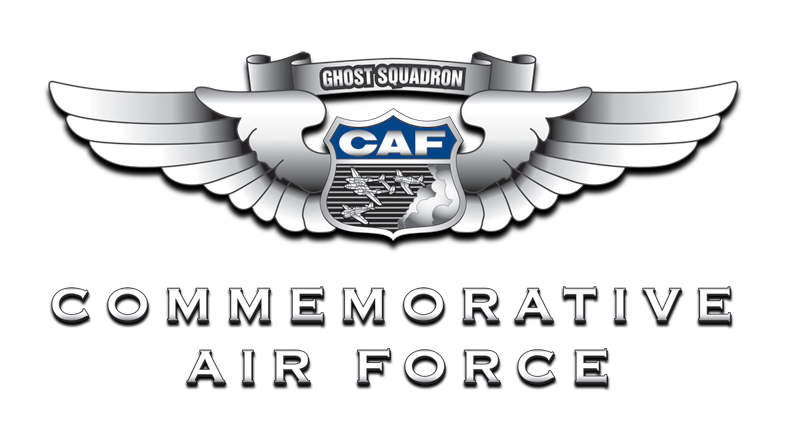Presentation Date: June 26, 1997
Mozart Kaufman
ETO P-39, P-47 Pilot, & POW ETO P-39, P-47 Pilot, & POW
"Memories of a Fighter Pilot"
"A lot of pilots died in those P-39s." Major Mozart Kaufman, Ret. speaking at our June dinner meeting at the O'Club offered personal experience about the penchant the Bell Airacobra had for "tumbling". In basic fighter training at Hamilton Field north of San Francisco Bay, his squadron lost five pilots in as many weeks in the fall of 1943.
Kaufman had sixty hours flying P-39s when he was deemed ready for aerobatics, at which time he vowed, "I'm not going to let any goddamned plane take me in."
Spin training was the test, power-off and power-on spins from 15-thousand feet and up. Kaufman says power-off spins went fine, but when he tried a power-on spin, it was a horse of a different color. "It was a vicious spin. We'd talked about tumbling... and I realized I needed to get out." Kaufman unbuckled his safety harness and repeatedly threw his shoulders against the left and right doors of the P-39 - - to no avail. He could see the cold waters of San Pablo Bay rushing up to meet him. Only a superhuman slam finally made one door fly off, and the wind pulled him from the Airacobra. The chute billowing over his head was the prettiest sight he'd ever seen.
In his debriefing, Kaufman says he told the training officers that pulling back the throttle was never listed in procedures for recovering from a power-on dive.
One month later, when Kaufman's squadron was transferred to the Aleutian Islands, Kaufman noticed a shiny new plate on the left cockpit wall of all the P-40s on Elmendorf Field. The plates read, "When in spin, pull throttle."
Operations in the Northern Pacific offered different hazards - - treacherous weather, two dozen missions within 29 days in April, 1943 and combat against Japanese forces invading Kiska.
The next rotation for the 48th Fighter Bomber Group was Europe, and in March, 1944 Kaufman's group flew P-47s on short range escort for bomber missions to Germany. He vividly recalls the time he watched from his cockpit as one thousand bombers filled the sky as they returned from hitting a target.
Escort duty came to a close with D-Day, the invasion of Normandy. Kaufman recalls his squadron of 16 Thunderbolts breaking thru cloud cover at 7,000 feet over the Channel and seeing the invasion armada. "From the air it looked like a small boy had dumped a box of matches into a bucket of water."
The Ninth Air Force was flying ground attack missions against concentrations of German tanks and troops. The P-47's ruggedness and its aircooled radial engine had Thunderbolts assigned to bomb and strafe. To Kaufman, there was nothing like flying down on the ground. He described close calls from flak and the concussion from his squadron's bombs. On June 30, 1944, leading a mission against German tanks, Kaufman's combat flying days came to an end.
The 500 pound bombs the 48th Squadron was dropping under armored vehicles had 45 second fuses, allowing tank crews to drive away from the threat. Kaufman was trying to selectively drop bombs and strafe to halt tanks so the rest of his flight could finish them off. His Thunderbolt had already suffered engine damage from a bomb blast when it was hit by flak, the nose of the Thunderbolt bursting into flame.
Kaufman says he was about ten feet from the ground when it happened and he immediately pulled up to 500 feet, the flames kept from him only by the canopy.
He pulled the canopy, found he was still strapped in, and had to endure the flames as he went over the side. He says he pulled the ripcord, and before he could look up to see the open parachute, his feet hit the ground.
Captured, Kaufman was taken to Paris and with other pilots, put on a train to Germany. He tells of German attempts to get the POWs to sign papers saying they wouldn't try to escape. In 1944 trains were regularly strafed, forcing troops and POWs alike to scatter into the woods alongside railroad tracks. Kaufman was the lone POW who refused, and was told he would have to stand on the train with his hands over his head while a guard trained a rifle on him - - all during a strafing attack.
Taken to Stalag Luft 1 in northern Germany, Kaufman spent a month in solitary confinement, on a near-starvation diet, while he was interrogated. Many years after the war, Kaufman found out that he was one of only three soldiers that his interrogator had failed to make talk.
Another post-war surprise for Mozart Kaufman came when he discovered that his squadron commander had promoted him to the rank of Major, to be awarded after his months as a POW in Germany.
Kaufman's memoirs are published in the book "Fighter Pilot".



